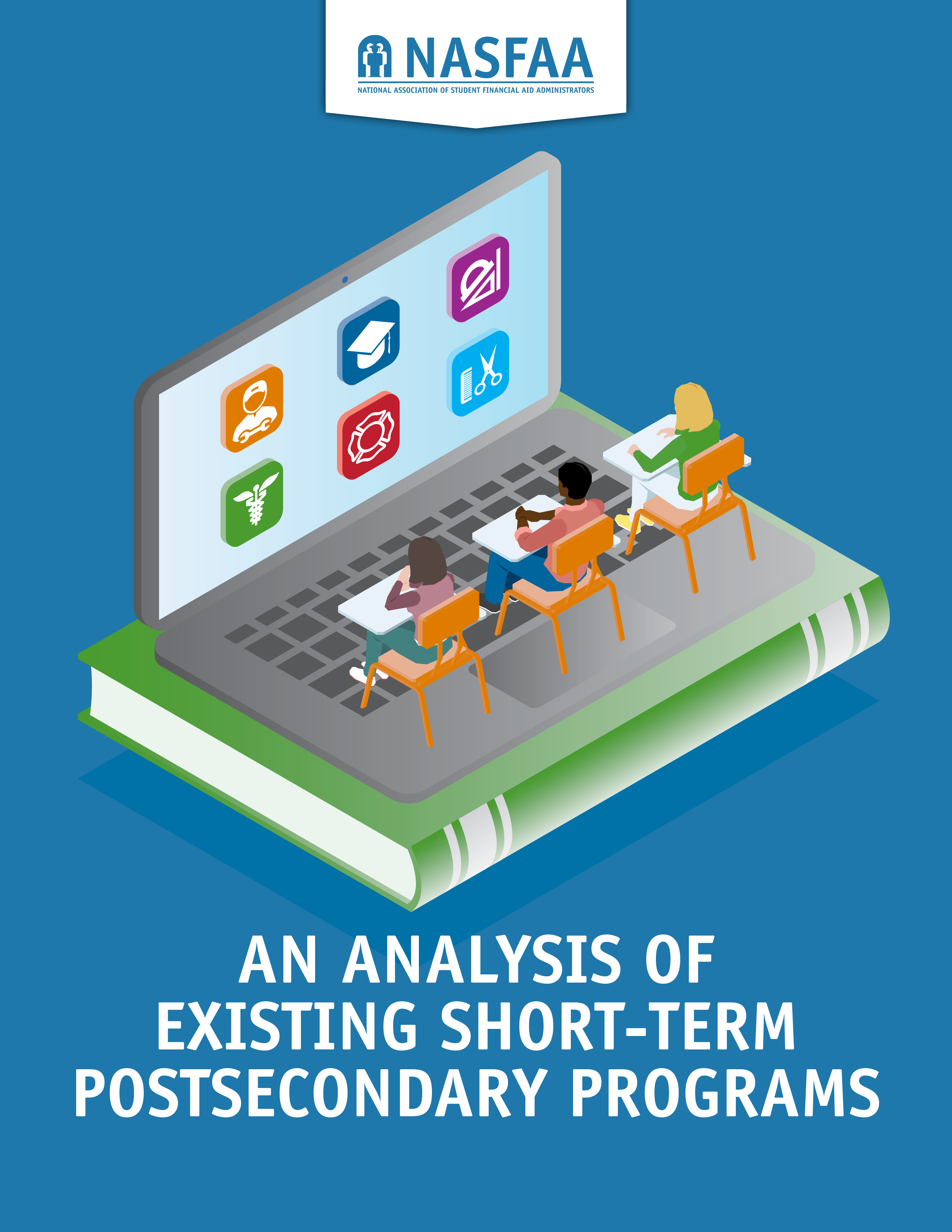 This week the National Association of Student Financial Aid Administrators (NASFAA) released a new research report on the national landscape of short-term postsecondary programs- An Analysis of Existing Short-Term Postsecondary Programs. Advance CTE and the Association for Career and Technical Education (ACTE) contributed to the final report with information collected from each organization’s membership about the impact, barriers and opportunity for these programs.
This week the National Association of Student Financial Aid Administrators (NASFAA) released a new research report on the national landscape of short-term postsecondary programs- An Analysis of Existing Short-Term Postsecondary Programs. Advance CTE and the Association for Career and Technical Education (ACTE) contributed to the final report with information collected from each organization’s membership about the impact, barriers and opportunity for these programs.
The resource defines short-term programs, outlines some of the funding mechanisms that exist, shares out the results of a survey sent to Advance CTE, ACTE and NASFAA memberships and chronicles interviews and focus group discussions with state and local Career Technical Education (CTE) leaders. Key findings from the research include:
- “The majority of institutions agree or strongly agree that their short-term programs benefit the local economy, adult learners, and other students, and that expanding short-term programs is of interest to industry representatives, educators, and local leaders.
- The most common short-term credentials offered by participants in our study are in health care and transportation fields.
- The business sector is one of the most significant driving forces behind short-term program development. Employers offer input into program designs to provide students with in-demand skills.
- Institutions often face difficulty filling short-term programs with sufficient enrollments because prospective students cannot afford the costs, and colleges can be reluctant to build short-term certificate programs that are not financial aid eligible, even when they would benefit students and employers.
- Just over half of programs offered by institutional survey respondents are eligible under the Workforce Innovation and Opportunity Act (WIOA).
- Many short-term certificates are already embedded in longer certificate or degree programs, or are considered “stackable” credentials that build upon previous credentials and may feed into degree programs.
- States and institutions would be interested in offering more short-term programs if the programs were eligible for Federal Pell Grants and could serve more students.
- Even if short-term programs became eligible for federal financial aid, however, most institutions stated they could not shorten many existing programs because of state, industry, and academic standards.”
The survey results and interviews with Advance CTE membership show a clear desire from state CTE leaders to grow and improve short-term postsecondary programs. The positive benefits these programs have on career growth is a motivating factor for key stakeholders to continue to build these programs and figure out solutions to challenges such as funding and lack of data collection.
Meredith Hills, Senior Associate for Federal Policy

